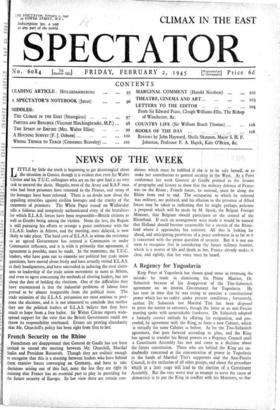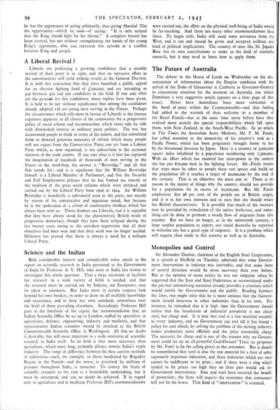A Regency for Yugoslavia
King Peter of Yugoslavia has shown good sense in reversing the mistake he made in dismissing his Prime Mnister, Dr.
Subasitch because of his disapproval of the Tito-Subasitch
agreement on an interim Government for Yugoslavia. He has seen in time that he was trying to exercise a constitutional power which has no reality under present conditions ; fortunately, neither Dr. Subasitch nor Marshal Tito has been disposed to press the matter to extremes, though the latter at an anti-Fascist
meeting spoke with unmistakable frankness. Dr. Subasitch adopted a formally correct attitude by offering his resignation, and pro- ceeded, by agreement with the King, to form a new Cabinet, which is virtually the same Cabinet as before. As for the Tito-Subasitch agreement, that goes forward according to plan, and the King has agreed to transfer his Royal powers to a Regency Council until a Constituent Assembly has met and come to a decision about the future constitution. Those who are behind the King are un- doubtedly concerned at the concentration of power in Yugoslavia in the hands of Marshal Tito's supporters and the Anti-Fascist Council, to the exclusion of all other groups, and about the procedure which at a later stage will lead to the election of a Constituent Assembly. But the very worst way to attempt to serve the cause of democracy is to put the King in conflict with his Ministers, so that
he has the appearance of acting arbitrarily, thus giving Marshal Tito the opportunity—which he took—of saying: " It is only natural that the King should fight for his throne." A complete breach has been averted, but not without strengthening the hands of the young King's opponents, who can represent this episode as a conflict between King and people.



























 Previous page
Previous page